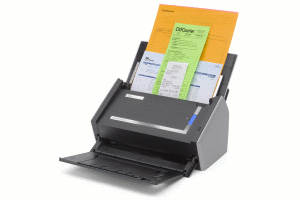
The hardware interface needs to be easy to navigate, and the desktop and mobile software should be powerful enough to get the job done but not so complex that it gets in your way when you’re working under pressure. Usability: If you hate using your scanner, you’re not going to use it.

Stationary desktop scanners are faster, but they take up more space on a desk, and you can’t easily toss them in a drawer until the next time you need them. Easy to stow away: You probably won’t scan every day, which is why it’s great that these machines are designed to fold down into an even more compact profile for storage and travel.It’s a lot harder to accidentally discard digital copies, especially when you’ve backed them up to a cloud storage account. Scans are harder to misplace than paper: Even if you’re diligent about sorting and filing your receipts and tax forms, there’s always the chance you’ll inadvertently toss something out during a move or spring cleaning.That’s a lot better than spending an afternoon digging through dusty filing cabinets. Makes documents easier to find: Since portable document scanners use optical character recognition (OCR) technology to turn printed text into searchable text, you can do word searches to find exactly the document you need in seconds.Creating digital copies means you can stay in compliance without drowning in a sea of paper. Reduces clutter: This may be the digital age, but a frustrating variety of documents still come exclusively on paper, and many of them need to be kept for years according to state and federal laws.


 0 kommentar(er)
0 kommentar(er)
